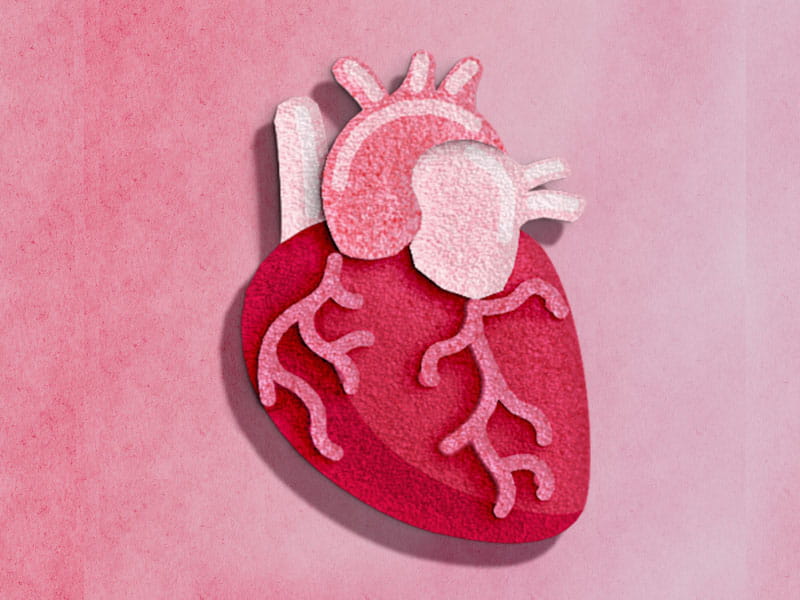Heart failure more common in heart defect survivors starting at young age
By Laura Williamson, American Heart Association News

People born with heart defects may face a nearly ninefold higher lifetime risk for heart failure and develop it decades earlier than people born without heart abnormalities, new research shows.
Though heart failure is extremely rare in young people, any occurrence in young congenital heart defect survivors signals a need for better screening and follow-up, starting early and continuing throughout their lifetime, said lead study author Dr. Niklas Bergh, a cardiologist at Sahlgrenska University Hospital in Sweden.
"Increased awareness of the high risk of heart failure in this population may lead to an earlier diagnosis as well as more appropriate treatment, which may have implications for survival," he said.
Congenital heart defects describe any heart abnormality present at birth. This happens when the heart, or blood vessels near the heart, fail to develop normally during pregnancy. There are at least 18 types of structural abnormalities that can occur. According to the Centers for Disease Control and Prevention, congenital heart defects occur in about 1% of – or 40,000 – babies born in the U.S. each year.
Prior studies have shown that people born with heart defects face a higher risk for heart failure than others. Heart failure – a condition in which the heart doesn't pump blood as well as it should – is the leading cause of death for people with heart defects, who have a lower life expectancy than people without them. Because it rarely occurs in young people, most heart failure research focuses on adults, whereas the new research looked at people from birth.
The new study, published Monday in the American Heart Association journal Circulation, used national health records and cause of death data for people in Sweden. The researchers compared 89,532 people born with heart defects between 1930 and 2017 with a control group of 890,469 people without heart defects.
During an average 25 years of follow-up, 7.8% of people with congenital heart defects were diagnosed with heart failure. In people born with healthy hearts, 1.1% developed heart failure during an average 27 years of follow-up. Overall, the lifetime risk for heart failure was 8.7 times higher for people born with heart defects than those born without. And the more complex the defect, the greater the risk. Those with more complex defects faced a threefold higher risk of heart failure than those with less complex defects.
The risk for developing heart failure differed greatly by age group. Those 17 and younger with heart defects faced 220 times higher risk than their peers without heart defects. The differential fell as the groups aged. For those 60 to 69, the risk was five times higher in people with heart defects.
This study shows "how much more concerning heart failure is for younger people," said Dr. Curt Daniels, director of the Adult Congenital Heart Disease Program at Ohio State University and Nationwide Children's Hospital in Columbus.
Daniels, who was not involved in the research, said he wasn't surprised to see an overall higher heart failure risk for people with congenital heart defects but was surprised to see such a high risk among children.
"People ages 0 to 17 are not expected to have heart failure at all," he said.
In the past, children born with heart defects often didn't live long enough to develop heart failure, Bergh said. But as advances in pediatric cardiology and surgeries to treat heart defects have allowed them to live longer, they face a higher risk of developing other problems throughout their lives.
The new analysis showed people born with heart defects experienced heart failure at a much younger age than those born with healthy hearts. On average, those with congenital heart defects experienced heart failure at age 40, compared to 66 for their matched peers.
This means "when I see a patient who is 40 years old, they are basically a 66-year-old in terms of cardiovascular risk," Daniels said.
There's very little research investigating ways to reduce heart failure risk or treat the condition in people with congenital heart defects, Daniels said.
"There is such a lack of attention to this population," he said. "We need to understand that these patients are unique and different. We need research for how to evaluate and treat heart failure in this group earlier in life."
If you have questions or comments about this American Heart Association News story, please email [email protected].





